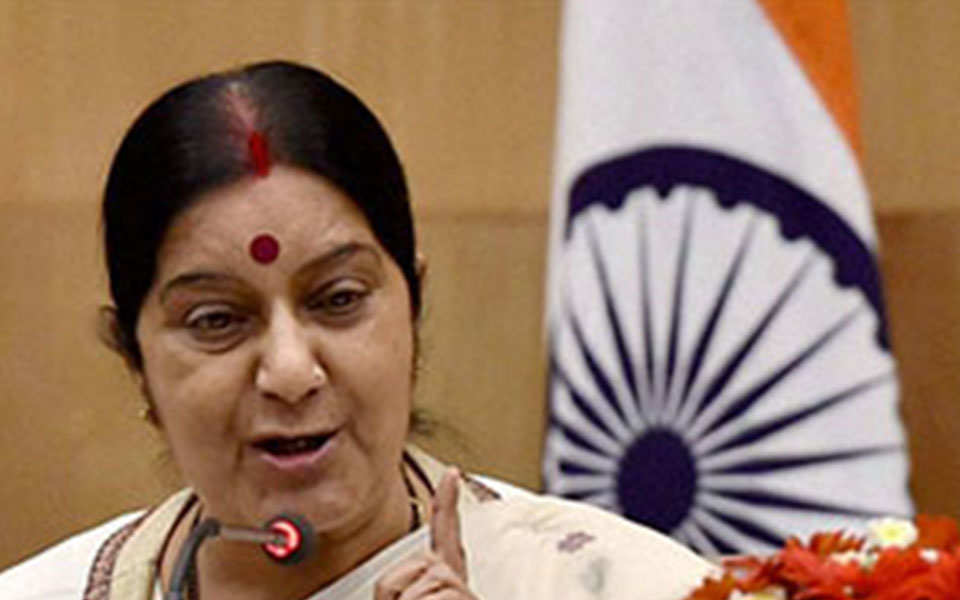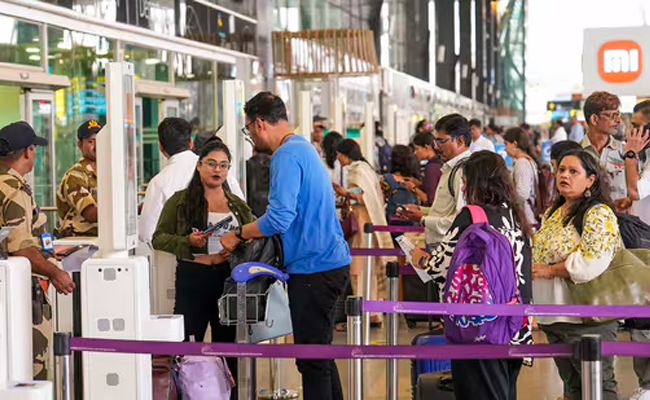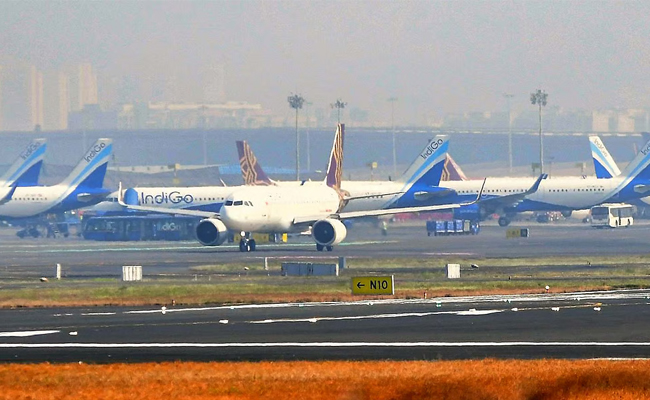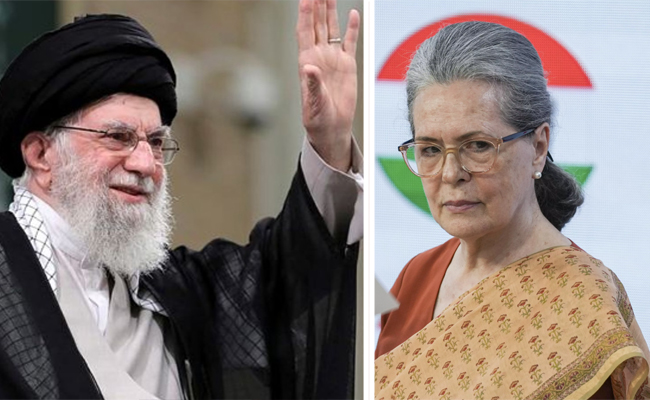New Delhi, June 22: Reminding the developed world of their commitments to developing countries, External Affairs Minister Sushma Swaraj on Friday said developing countries need support to combat climate change.
Speaking at a European Union (EU) High Level Event on Climate Change in Brussels, Sushma Swaraj said that the capacity of developing countries to translate their political commitments into tangible initiatives and projects gets constrained by lack of predictable, sustained and adequate finances and technologies.
"The scale of resources required for the ambitious and effective achievement of the Paris Agreement or the 2030 Agenda is enormous," she said.
"The need for global partnerships, in this regard, is recognised in these processes and is at the core of all solutions offered therein."
Under the landmark Paris Climate Agreement, from 2020 onward, a minimum flow of $100 billion annually must be ensured from developed world to support the developing countries to meet their climate commitments or as planned by their Nationally Determined Contributions (NDCs) submitted to the United Nations Framework Convention on Climate Change (UNFCCC).
India would require at least $2.5 trillion to meet its 2030 climate goals. Recently, the government had informed two of its projects had received $134.4 million from the Global Climate Fund (GCF).
Sushma Swaraj said that if these major documents are not implemented to reflect equity and principle of Common But Differentiated Responsibility, or fall short of the targets because the developing countries did not receive the requisite support, it would be a setback to all the effort put in by countries in a spirit of togetherness.
Common but Differentiated Responsibilities and Respective Capabilities (CBDR-RC) is a principle within the UN Framework Convention on Climate Change (UNFCCC) that acknowledges the different capabilities and differing responsibilities of individual countries in addressing climate change.
"I may add here that the schedule for phasing out of HFCs (hydroflurocarbons) under the Montreal Protocol could be achieved as it was accompanied with a robust financial package to help developing countries make the transition to cleaner
technologies," Sushma Swaraj said to make her point.
"The world needs a similar road map for finance and technology if we have to achieve the goals set out in the Convention and its Paris Agreement," she stated.
"In its absence, developing countries will face serious constraints in achieving their existing NDCs (Nationally Determined Contributions). Any expectations of them to enhance their ambitions should be matched with enhanced support."
Let the Truth be known. If you read VB and like VB, please be a VB Supporter and Help us deliver the Truth to one and all.
Bengaluru (PTI): Two-time Olympic medal-winning Indian badminton star P V Sindhu, who was stranded in Dubai due to closure of airspace in the Gulf region, has returned to the country after pulling out of the All England Championships in Birmingham.
Sindhu posted on X to announce that she is back in the city.
"Back home in Bangalore and safe. The last few days have been intense and uncertain, but I'm truly grateful to be back to my house," she posted.
"A heartfelt thank you to the incredible ground teams, Dubai authorities, airport staff, immigration, and every single person who stepped up and took such good care of us during a very difficult time. The empathy and professionalism meant more than words can say.
ALSO READ: Sonia slams Modi govt's silence on Khamenei killing, demands debate in Parliament
"For now, it's time to rest, reset, and figure out the next steps," she added.
The former world champion was on her way to Birmingham via Dubai, when she was stranded after the flight operations were suspended in the Gulf region following the US and Israeli bombing of Iran.
Iran subsequently retaliated, hitting Dubai as well.
"Moments like these remind you how fragile normal life really is," she had posted on February 28 while revealing some details of her ordeal, which included an explosion near her place of stay.
She had described the experience as "extremely tense and scary moment" for her and her team, including Indonesian coach Irwansyah Adi Pratama.





